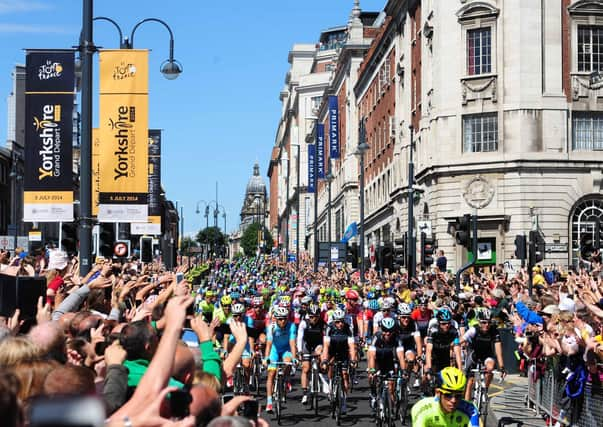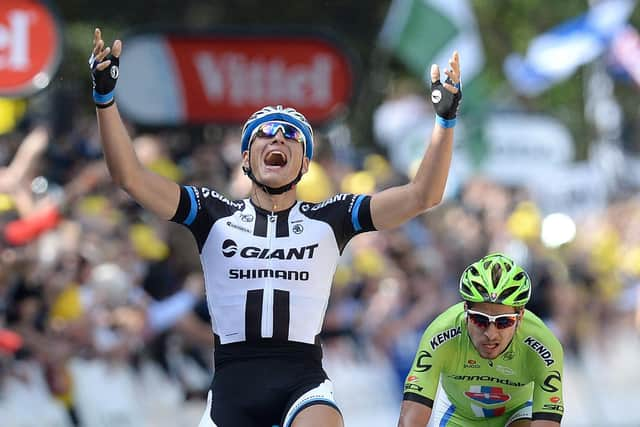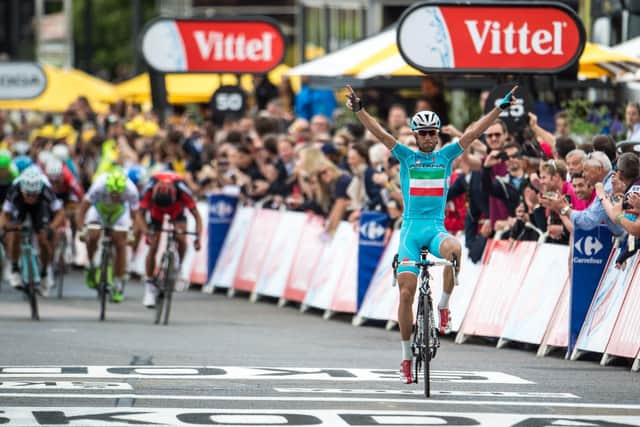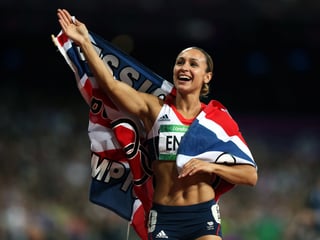Why covering Yorkshire’s Tour de France stages was most memorable event


THE grandest of all Grand Departs; a mass dash to be first to complete the energy-sapping course from Leeds to Harrogate – and that was only the queue at the station.
Six years on, everything about the weekend of July 5 and 6, 2014, was memorable. For cycling fans accustomed to spending most of July glued to the television, viewing the world’s elite riders in the flesh, on home roads, was a dream come true. Being able to write about it from the heart of the action was even better.


Advertisement
Hide AdAdvertisement
Hide AdBack in the early 1990s, I was working on the sports desk of the then-Yorkshire Evening Press when York hosted a criterium – circuit race – around the city centre. Race headquarters were in one of the municipal offices and a high-ranking official explained the council’s enthusiasm for staging such events.
“One day the Tour de France might come to Yorkshire,” he said. “And we’d want to be in on that.” At the time airborne pigs seemed a more realistic possibility, but more than two decades later, the second stage of the world’s greatest annual bike race did indeed visit the city, starting just a couple of hundred metres from this writer’s house.
For a regional sports reporter, particularly one who had been mildly obsessed by the Tour de France since becoming hooked on Channel 4’s coverage in 1991, it was an opportunity never to be missed.
Yorkshire has always been a cycling hotbed and, since money began to be pumped into the sport in the early 2000s, Great Britain has gone from a fringe nation to one of the sport’s powerhouses, both on the road and track.


Advertisement
Hide AdAdvertisement
Hide AdHonestly, it is not always the easiest sport to love. In 1998, a crackdown on the use of performance enhancing drugs – sparked when a team helper was stopped before the opening stage driving a car packed full of the stuff – led to arrests, expulsions, riders’ strikes and that year’s race becoming known as the ‘Tour de Farce’.
In 2004, new methods were used to test 60 samples taken during the 1998 Tour for the blood-boosting agent EPO and 44 proved positive.
The 1999 Tour, supposedly the start of a new era, was won by drugs cheat Lance Armstrong, the first of his record seven successive ‘victories’, all of which have since been wiped from the record.
The sport seems to have largely cleaned up its act since then, but suspicions still linger. That said, a road race can still be cracking entertainment. First of all, it’s free, which may be one of the reasons Yorkshire has taken it to heart.
Advertisement
Hide AdAdvertisement
Hide AdFans can get close to the athletes, the riders are generally accessible and happy to rub shoulders with the public and the atmosphere at roadside is often electric, even if spectating live tends to involve a lot of hanging around, followed by a brief, frantic glimpse of the action.
Big races, like the Tour de France, are more of a mobile party than a sporting event and Yorkshire very much took that to heart in 2014.
Perhaps the most uplifting – and typically Yorkshire – aspect of the two days was the humour with which the county handled being in the global spotlight.
On the Monday, a third English stage visited London and left no lasting impression. Not the case here. It’s still possible to spot yellow-painted bikes on display along more remote parts of the two stage routes, even if the yellow, green and red-spotted sheep have long been sheared.
Advertisement
Hide AdAdvertisement
Hide AdWhen someone had the bright idea of appealing for knitters to make woolly mini-jerseys to be used as decorations at roadside, more than 20,000 were produced. In Masham, the most northerly point in the Tour’s history, the council removed the home-made bunting because it was bending the lampposts.
It was fun before it even started, but the two days of actual racing proved the most unforgettable of my nearly a quarter-of-a-century at the YEP, despite almost ending in personal failure.
Rather than take the sensible option of heading straight to Harrogate for the stage one finish, the first mistake was travelling to Leeds for the roll out.
It is a given if there is a right side of the road to be standing on at a bike race, this writer will inadvertently choose the opposite.
Advertisement
Hide AdAdvertisement
Hide AdSo it proved in Leeds where, after a mooch around the start village and, surreally, a coffee alongside a couple of the riders just before the flag, I found myself on the wrong side of the Headrow and thus stuck as the caravan of cars which follows the riders made its way out of the city.
The plan was to catch a train to Harrogate for the finish, expected to be in a little less than five hours’ time. Unfortunately, everyone else had the same idea. Quite how many people were in the queue which snaked all the way around the station car park is anybody’s guess, but it was thousands. You’ve probably seen television footage of the evacuation of Saigon at the end of the Vietnam War – it was like that, though in far better circumstances.
Things got stranger when a phone call came in from a radio station in Detroit, keen to discover why the Tour de France was in Yorkshire. And, indeed, where Yorkshire is. Harrogate at that point seemed a long way off, but an hour or so’s queuing led to standing room only on the train and eventually safe arrival at the Salle de Presse in Harrogate’s Conference Centre.
After that, it was relatively plain sailing: watch a bit of the race on tv; gasp – along with the rest of the media – at the size of the throng lining the Cote de Buttertubs; battle through the vast crowd, 10 deep, to the media area at the finishline, which – naturally – was on the other side of the road, interview a few riders; wave to the Duchess of Cambridge (she waved back) and head home.
Advertisement
Hide AdAdvertisement
Hide AdAfter Marcel Kittel took the yellow jersey by winning a frantic sprint finish, the first order of business for The Yorkshire Post was a word with defending champion Chris Froome at the Team Sky bus.
Froome is one of the good guys and experienced enough not to be fazed by being the centre of a media scrum after four hours and 45 minutes in the saddle. He is always value for a quote and was clearly staggered by – and appreciative of – the number of people who had turned out at roadside.
The English media had been hoping to report on a victory for Mark Cavendish, whose mum lives in Harrogate. His crash during the final sprint was a disappointing end to the day. Cavendish is not always the easiest interview subject, but was willing to talk ahead of stage two from York to Sheffield.
The peloton, rolling out in front of packed grandstands at York Racecourse, was still buzzing at the warmth of the previous day’s welcome, though there was also concern naive spectators were putting the riders and themselves at risk by stepping out into the road to take pictures.
Advertisement
Hide AdAdvertisement
Hide AdI witnessed what was very nearly a nasty accident when a fan walked into the middle of the road for a selfie after the last rider had passed, completely oblivious to the caravan of vehicles following on.
That stage was won by Italy’s Vincenzo Nibali, who took the yellow jersey and went on to wear it on the Champs-Elysees in Paris three weeks later. He probably has fond memories of those two days in Yorkshire, but mine are fonder!
Editor’s note: first and foremost - and rarely have I written down these words with more sincerity - I hope this finds you well.
Almost certainly you are here because you value the quality and the integrity of the journalism produced by The Yorkshire Post’s journalists - almost all of which live alongside you in Yorkshire, spending the wages they earn with Yorkshire businesses - who last year took this title to the industry watchdog’s Most Trusted Newspaper in Britain accolade.
Advertisement
Hide AdAdvertisement
Hide AdAnd that is why I must make an urgent request of you: as advertising revenue declines, your support becomes evermore crucial to the maintenance of the journalistic standards expected of The Yorkshire Post. If you can, safely, please buy a paper or take up a subscription. We want to continue to make you proud of Yorkshire’s National Newspaper but we are going to need your help.
Postal subscription copies can be ordered by calling 0330 4030066 or by emailing [email protected]. Vouchers, to be exchanged at retail sales outlets - our newsagents need you, too - can be subscribed to by contacting subscriptions on 0330 1235950 or by visiting www.localsubsplus.co.uk where you should select The Yorkshire Post from the list of titles available.
If you want to help right now, download our tablet app from the App / Play Stores. Every contribution you make helps to provide this county with the best regional journalism in the country.
Sincerely. Thank you.
James Mitchinson
Editor
Comment Guidelines
National World encourages reader discussion on our stories. User feedback, insights and back-and-forth exchanges add a rich layer of context to reporting. Please review our Community Guidelines before commenting.
